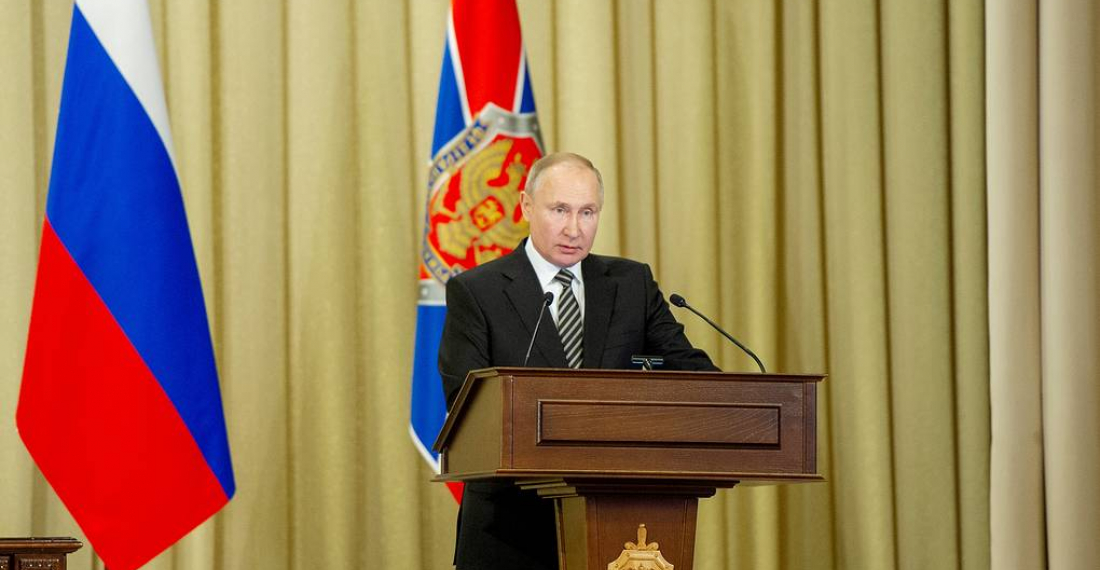The threat of terrorism continues to loom high in Russia, and President Vladimir Putin addressed it head on when addressing the Board of the Federal Security Service (FSB) on Wednesday (24 February). Yet in Russia it seems it is not clear who is friend and who is foe in this war on terror.
Last year, 72 terrorism-related crimes were foiled in Russia, 25% more than in 2019, President Putin told the FSB. Experts stress that extremist activity remains one of major challenges for the post-Soviet states. Specialists also warn that terrorism turned into an element of a hybrid war a long time ago, the Russian daily newspaper Izvestia writes.
The president requested the intelligence service that the focus be placed on uncovering contacts between terror groups and foreign intelligence services while also mentioning other threats, including external pressure, economic crimes and cyberattacks. He said:
"It is important not only to identify and eliminate terrorist cells, including the so-called sleeping, deeply conspiratorial ones, but also to analyze and predict the situation in general, to take into account that the leaders, ideologues of terrorists are constantly changing tactics, looking for sources for financial support and using new methods for propaganda and drawing young people into their ranks. I ask you to pay special attention to the opening of contacts between terrorist groups and foreign special services. You know this very well, unfortunately, everything goes on, terrorists are also used."
Putin referred particularly to a recent operation against terrorist groups in Chechnya.
"In December last year, the last organised bandit group that committed crimes on the territory of the Chechen Republic and Ingushetia was destroyed. The result is extremely significant. Work is in progress on distant approaches. This includes strikes against terrorist bases in Syria. Once again, I would like to thank everyone who took part and is taking part in these operations."
According to the Chechen leader Ramazon Kadyrov, who commented on Putin's speech, the Russian president personally supervised the December operation. Chechnya in fact remains the achilles heel of Russia's anti terrorist anti radicalisation efforts, despite all the bravados of Putin and Kadyrov who keep insisting the threat had been eliminated, only to see it re-appear again.
The source of all threats to Russia is the activity of international terror groups, which recruit Russian citizens, political scientist Nikita Mendkovich told Izvestia. However, a serious problem is the recruitment of citizens in the Commonwealth of Independent States, who come to Russia as labor migrants. This situation underlines the need for further fostering cooperation between CIS states and the Collective Security Treaty Organization, a key post-Soviet security bloc.
Another serious problem for the entire global community is terrorism committed by lone wolves, who act independently without being linked to any major group. President of the International Counter-Terrorism Association Joseph Linder warns that behind the "lone wolves" there are often "puppeteers" who supervise or ideologically cultivate them. "We live in an era of a terrorist pandemic. Moreover, after the end of World War II, terrorism has become an element of a hybrid war, which some states use to achieve their goals," the expert told Izvestia. "Against this background, cooperation and confidence building are required even between countries that perceive themselves as geopolitical opponents on the world stage."






